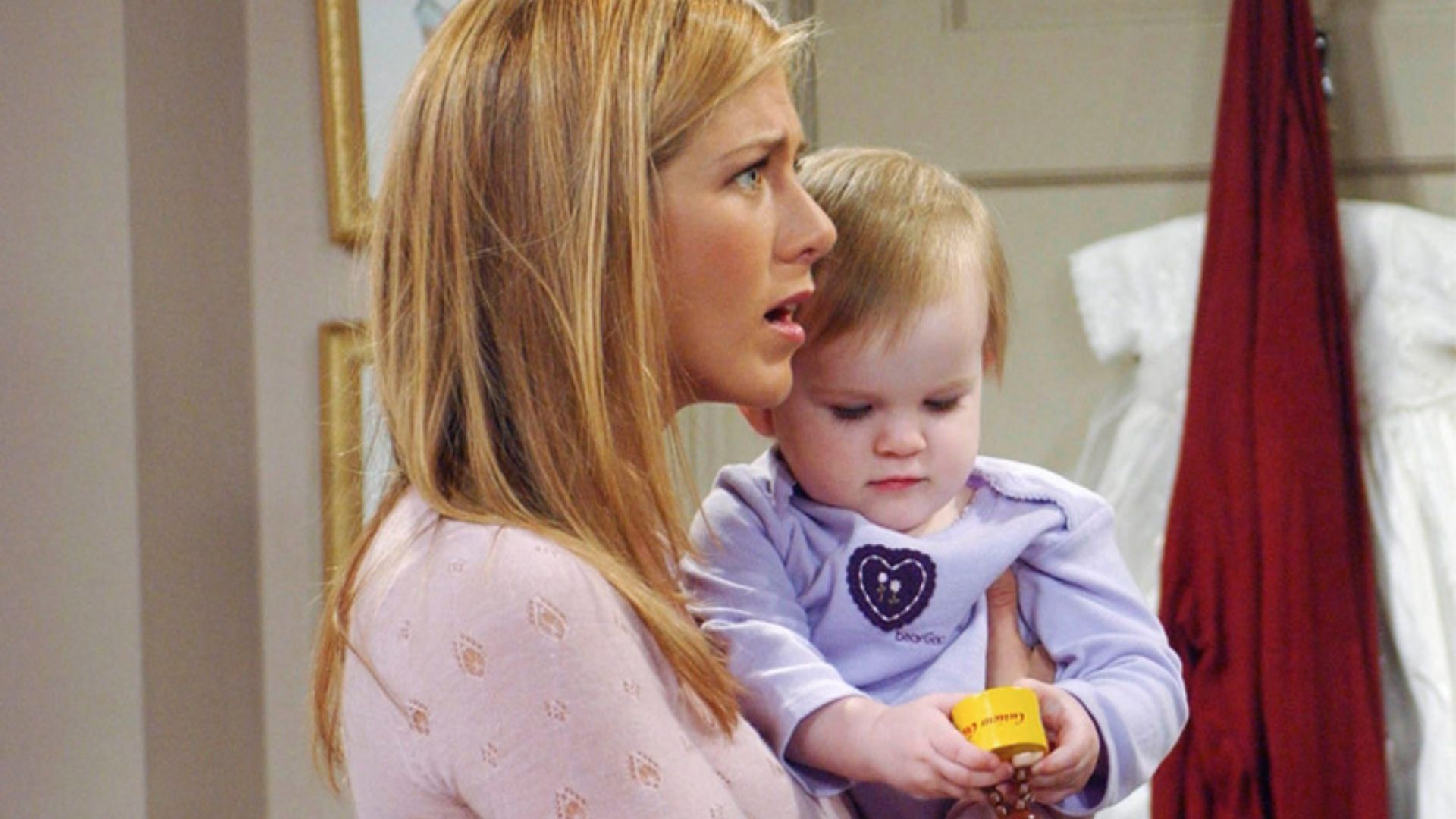Article originally published June 23, 2021
“So when do you give him a little brother or a little sister?” “
Here’s THE most common question my relatives, my friends, the pediatrician, the school principal, the old stranger I met on the bus and the baker ask me.
This question, innocent to the one who asks it, nevertheless has the gift of messing with me and making me tense at the highest point. But let’s contextualize that anger a bit, if you like.
My first pregnancy, far from being a pleasure
I have a four and a half year old daughter (which matters), who I have had no problem having. I know I’m lucky, because there are many who long for a child and struggle.
For my part, once the car started, I had a fairly basic and uneventful pregnancy, although I particularly hated this period. Made of constraints, embarrassing and bland attentions that were initially kind (I couldn’t bear to be seen differently because I was pregnant), these nine months seemed endless to me, even if, biologically speaking, everything was fine.
The delivery, meanwhile, was a butcher’s shop. Very long labor time, double epidural, emergency cesarean section and bleeding, it wasn’t much fun.
All of this was quickly swept away by the huge tsunami of a particularly difficult postpartum depression, from which it took me months, even years, to recover. Even today, I am not sure that I have found all the fulfillment and serenity that was promised to me in motherhood.
I don’t recognize myself among happy mothers, my traumas are still very present, under the surface, most of the time happily appeased by a skill of my daughter or by one of her magnificent smiles. Thankfully, otherwise it has been a long time since I went back to the maternity ward asking for a refund, don’t joke.
For me, the first steps in motherhood were chaotic, so when I hear people ask me with a smile when I’m going to make my daughter a big sister, I have to grit my teeth very hard to avoid sending violent jokes and words to everyone’s boss. those who dare to ask me the question.
The maternity injunction, this scourge
One might think, once we enter the “soft” world of parenting, that we will let go of our ovaries a little and stop worrying about our ability to support the country’s demographics. No, for some obviously one child is not enough, you have to get back to the beat and have a second, and soon please.
Typically, we hear phrases like: “there shouldn’t be too much age difference with the first-born” or “even if it means being in diapers, you might as well do it quickly so as not to lose your hand.” There are also people who try to make us feel guilty by explaining that if we don’t have a second child the first will be bored, poor thing. Do we want our adult child to bury us alone? Do we really want to let our child live alone in this world when we parents are gone? And then having a single child is making him capricious, it’s making him “a child king”, so you have to do a “little second” quickly.
Here is a summary of the just hidden injunctions that I frequently hear, when I put forward the hypothetical idea of having a single child, an “only” one.
According to these people who, however (more or less) are close to me, I should soon make my daughter a little brother or a little sister, make her a tailor-made playmate and a shoulder to lean on when we have, my husband and I have decided to take up arms to the left. A bit like a golden retriever, but less hairy.
Nice, the pressure. Pressure for my daughter, for the hypothetical second child (and if they don’t get along?) And then for us parents.
I don’t see when we can be calm in the face of all this. I thought that by responding to society’s request to have a child (without even being forced to do so, I wanted to be a mother, I remind you), I would no longer be subjected to injunctions on the reproductive capacity of my body, I was very naive.
The model of families with two children is a minority
However, the classic “two parents, two children” model, often presented as the “ideal family”, is not the majority in France. Vanessa Girard, urban planner, specialist in demographic and social issues in Brest explains:
“Families with one child represent 45% of families, against 39% of those with two children, 17% with three or more children. And this without going into the details of mixed families or single-parent families. “
So why does the company insist so much on rebooting the car to be the famous little brother or sister? The activist and specialist in the fight against maternal injunctions, the brilliant Fiona Schmidt, has her opinion on:
«The norm has nothing to do with a simple arithmetic means: the norm is not ‘the majority of people’, it is a social construction that varies in space and time, and which sets itself up as a model.
In the mainstream culture that shapes our representations, in advertising, in series, in cinema, etc., the French family model is a slim, skilled young CSP + white straight family with two children. And by dint of being omnipresent, this model becomes the norm, and everything that deviates from it becomes “abnormal”, even if it is the majority! “
The author of the book Let go of the uterus adds, giving a very applicable example:
“Size 36 is not the norm, given that only 4% of women actually wear size 36. But by dint of seeing only women wearing size 36 in public spaces, we became convinced that only size 36 was socially valid: it is the same principle. “
There is definitely no way he’ll leave us alone, in fact.
The maternity injunction does not stop after the first child
Even after having two children, we continue to put pressure on our uterus, explains Fiona Schmidt:
“These injunctions are valid for the second child, systematically, and sometimes also for the third, when the couple has not had what we continue to call” the choice of the king “, that is, a child of each sex (note in passing the very character misogynist of this common expression, which is based on the idea that a man can decide the sex of his child, and that this makes him a father superior to others).
The choice of having a child alone is a little less taboo than the choice of not having one at all, but the common thread is that it is constantly assumed that it is a default choice, not an enlightened and serene choice and, above all, a bad choice. “
Speaking of the more or less absurd reflections that can be heard on the poor only child who does not know the joy of sharing his sweets with his brother or sister, the author and activist explains:
“The myth of the capricious, spoiled and unhappy only child is still hard to die, which is absurd, once again: it’s not that children aren’t socialized at an ever younger age, or that they haven’t had the opportunity to socialize. with other children outside the first family circle! “
But suddenly, from what moment does society believe mothers have “done the job”?
According to the author, there are no more injunctions from the third child. She tells us:
Having a fourth child, or even a third when you already have “the choice of the king”, is rather suspect, and socially little considered. Mothers of so-called large families still suffer from class prejudices sometimes accompanied by racist prejudices that have not changed for decades.
So the maternity injunction ceases from the second child, but this does not mean that the social pressure decreases, because the care and education of children are extremely standardized, so scrutinize. And since parenting is seen as the responsibility of mothers, they are the ones who bear most of the pressure related to their children. “
In concrete terms, whatever we do, we are always wrong.
“So when is it for the little brother?” or how to answer this unwanted question
Depending on my level of tiredness, my tiredness or my mood of the day, the answers I can give to people who are a little too interested in my private life vary.
It can range from a simple smile that leaves my interlocutor free to interpret my answer, to a purely gratuitous and venerable spade asking him to go more or less kindly to see elsewhere if there are any.
Inevitably, depending on the person in front of me, I adapt. I won’t tell my daughter’s school principal to tease me with her bullshit questions about her or advise my mother-in-law to touch her ass rather than worry about what’s going on in my womb. I didn’t grow up under a rock, I still know how to make sense of things, although sometimes I imagine a very different answer in my head.
Fiona Schmidt gives me some tips that I share with you (it is altruism), to help you answer those who ask you the question, in case you find yourself, like me, in front of too curious people:
“You can say ‘because I / we are very happy like this’, with a big smile. Of course, this argument, however unstoppable, will not be enough, so a fairly effective parry is to respond to the person who insists (because he will insist …) with a question rather than an explanation: “Why do you care so much about what I have a second child when I told you I was so happy? What is bothering you so much? How is your life likely to be affected by my choice? “
Believe my experience, whatever explanation you provide about a life choice, your interlocutors will not be convinced and will try to convince you that their way of life is good. better: keep your energy, do not justify yourself. Never, under any circumstances. “
That’s right, we hold our energy and we don’t justify. And then we take the cluster, the uterus, the ovaries and the whole body, if you don’t mind, okay? Thanks x.
Photo credit image from the One: Friends series
More articles on
Wish for a child
-
“So when do you do it, little brother?” Shut up!
-
“Do you want children?”: What to answer this question (outbreak) in a job interview?
-
“I experienced postpartum much better than pregnancy”: Juliette recounts her birth
-
5 reasons not to have children, from someone who has (2 times)
-
“We are embarking on the project with great hopes”: diary of a MAP, episode 1
Source: Madmoizelle
Lloyd Grunewald is an author at “The Fashion Vibes”. He is a talented writer who focuses on bringing the latest entertainment-related news to his readers. With a deep understanding of the entertainment industry and a passion for writing, Lloyd delivers engaging articles that keep his readers informed and entertained.





